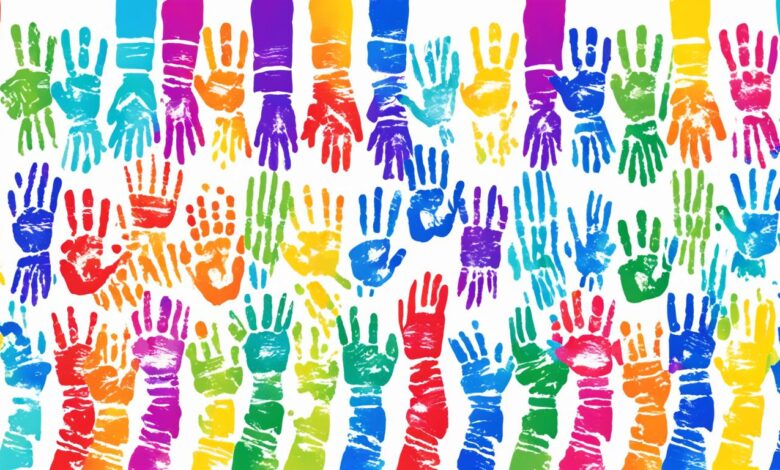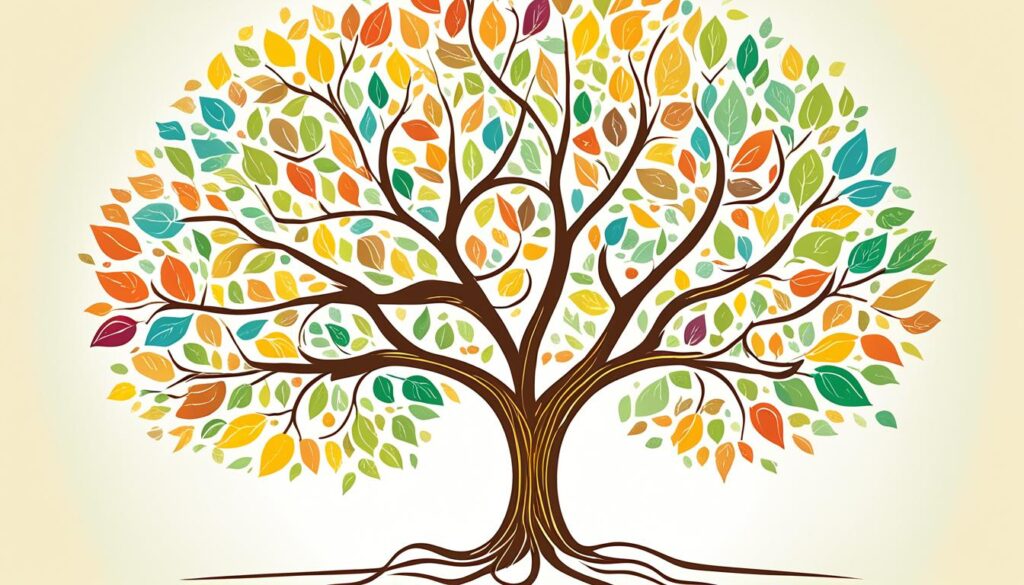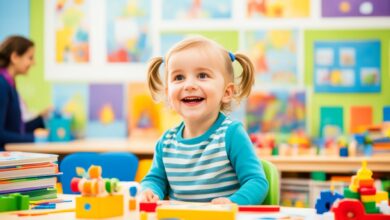
As parents, it’s key to watch your child grow through school. From kindergarten to twelfth grade, each stage has its own milestones. These milestones shape their future. Using the right ways to check on their progress helps create a caring environment.
This support ensures your child gets the help they need. Tools like child development assessments give you insights into their growth. This makes it easier to change strategies to fit their changing needs.
Key Takeaways
- Understanding the stages of child development is essential for parents.
- Effective monitoring strategies contribute to positive growth.
- Child development assessment tools help in tracking progress.
- Creating a supportive environment encourages emotional well-being.
- Proactive involvement from parents makes a significant difference.
Understanding the Stages of Child Development
Child development goes through different stages, each with its own milestones. These milestones show growth in physical, cognitive, emotional, and social areas. It’s key for parents and caregivers to know these child development milestones. This helps them support their child’s growth.
Overview of Child Development Milestones
Every stage of child development has its own milestones. These milestones show growth in physical, cognitive, emotional, and social areas. Knowing these milestones helps in supporting development and spotting early concerns. Here’s a brief look at these milestones in the first few years:
| Age Range | Physical Milestones | Cognitive Milestones | Emotional/Social Milestones |
|---|---|---|---|
| 0-1 Year | Rolls over, sits without support | Begins to explore, recognizes familiar faces | Smiles, starts to develop attachment |
| 1-2 Years | Walks independently, climbs | Imitates actions, explores surroundings | Shows fear in some situations, prefers certain people |
| 2-3 Years | Runs, kicks a ball | Begins to sort objects, understands simple instructions | Expresses a wide range of emotions, takes turns |
Significance of Each Developmental Stage
Each stage of child development is crucial for a child’s future. Early childhood sets the stage for lifelong learning. Research in child development psychology highlights the need for responsive interactions during these years. Activities that match a child’s age can greatly affect their emotional and cognitive growth. This prepares them for future challenges.
Choosing Quality Child Care for Positive Development
Finding the right child care is key for your child’s growth and development. Look for places that boost their physical, intellectual, and social skills. They should also be safe. A good setting lets kids explore and learn, which is great for their well-being.
Selecting a Safe and Stimulating Environment
When picking child care, focus on safety and fun activities. A great place should let kids learn through play and exploration. It should be safe, with careful supervision and easy access to emergencies. Activities should help kids grow at their own pace through play.
Factors to Consider for Child Care Choices
Think about more than just safety when choosing child care. The caregivers should know a lot about child development and how kids learn differently. This helps them teach in a way that fits each child. Also, a smaller number of kids per caregiver means more attention for each child.
What activities they offer is also key. Places with lots of different activities make kids curious and think deeply. Watch how they mix play with learning in their daily plans. This ensures kids get both structured and free time to learn.
| Factor | Importance | Considerations |
|---|---|---|
| Caregiver’s Knowledge | Facilitates tailored learning | Check qualifications and experience |
| Caregiver-Child Ratio | Affects individual attention | Lower ratios are preferable |
| Types of Activities | Supports various developmental needs | Look for play-based and interactive options |
| Environment Safety | Ensures a secure space | Inspect childproofing and protocols |
Choosing good child care is crucial for your child’s growth. By knowing what makes a place safe and understanding key factors, parents can pick wisely. This helps kids grow and be happy.
Personalized Approaches to Your Child’s Development
Helping a child grow means seeing what makes them special and using strategies that fit them. Every child is different in what they like, how they learn, and how they act. It’s important to use child development resources to make a space that helps them grow.
Using a child development plan made just for them can really help with things like feeling good about themselves and understanding others. These are key for kids from kindergarten to high school. When parents connect with their kids in a way that feels personal, it builds a strong bond. This helps with talking and understanding each other better.
- Evaluate learning styles: Find out what works best for your child—visual, hands-on, or listening.
- Set tailored goals: Make goals that are right for your child’s skills and interests.
- Utilize diverse resources: Use different tools like apps, books, and local programs to keep learning fun and interesting.

Child’s Development Assessment: Tools and Techniques
Assessing a child’s development is key to spotting their strengths and areas to work on. There are many ways to do this, from formal tests to just watching how they act. Using different methods helps parents and teachers understand a child’s progress. This way, they can support the child’s learning better.
Effective Assessment Methods
Standardized tests are a common way to check a child’s development. They give clear numbers to compare with other kids. But there’s more than just tests. Checklists and rating scales offer a structured way to watch a child grow.
Teachers and caregivers also use stories and portfolios. These show a child’s progress over time. They add a personal touch to checking how a child is doing.
Tracking Progress Through Observations
Watching a child closely is important for tracking their development. By seeing how they act every day, parents can spot important changes. This helps caregivers help the child when they need it.
Using both formal tests and just watching the child gives a full picture of their development. It shows what they’re doing well and what they need more help with.
FAQ
What are the key stages of child development I should be aware of?
Child development includes physical, cognitive, emotional, and social growth. These stages cover from infancy to adolescence. Each stage has its own milestones. Knowing these stages helps parents spot any concerns in their child’s growth.
How can I effectively monitor my child’s development during their school years?
To monitor your child’s development, use assessments like informal observations and standardized tests. Watching your child closely helps track their progress. It shows where they’re doing well and where they might need help.
What are some important child development milestones for young children?
Key milestones for young children include walking, talking, and solving problems. Each child grows at their own pace. Activities that support these milestones are very helpful.
What should I look for in quality child care?
Look for child care with caregivers who know different learning styles. Check the caregiver-child ratio and the activities offered. A safe, supportive place is key for kids to grow well.
How can I personalize my approach to my child’s growth?
Tailor your approach to your child’s learning style and interests. Use resources and programs that help your child grow in school and emotionally. This creates a caring, unique environment for your child.
What assessment tools can I use to evaluate my child’s progress?
Use tools like observations, checklists, and tests to see how your child is doing. These tools show you where your child is strong and where they might need more help.
Why are early years vital for child development?
The early years are crucial for development. They set the stage for learning and emotional growth. Activities during these years greatly affect physical and mental growth.




